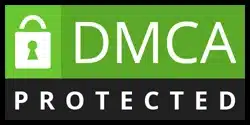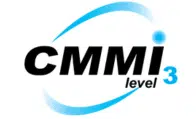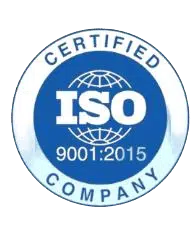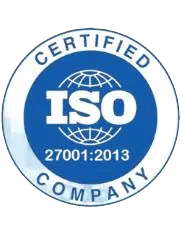Introduction - CRM Roles and Responsibilities
Customer Relationship Management (CRM) lies at the core of any successful business, serving as a strategic approach to understanding and managing customer interactions. By employing CRM systems, businesses can streamline communication channels, maintain comprehensive customer records, and foster long-term relationships that lead to growth. In today’s highly competitive environment, where brand loyalty can make or break a company, CRM has become indispensable for organizations looking to increase customer satisfaction while simultaneously improving operational efficiency.
CRM’s success rests not solely on its tools but on those responsible for optimizing and overseeing them. CRM specialists play a crucial role in making sure the system aligns with business objectives, supports sales teams and delivers actionable insights that improve customer engagement. Their duties extend far beyond data management–they act as the link between technology and personalized customer experiences.
At Taction Software, we specialize in equipping businesses with customized CRM solutions and expert consulting to maximize business potential. From installing cutting-edge systems to outlining role-specific responsibilities for individual roles within an organization’s CRM strategy – our team ensures every aspect is designed for maximum effect and we ensure your CRM efforts reach their maximum potential and build stronger, more meaningful connections with their customers.
Boost your CRM strategy—explore key roles and responsibilities now!
Understanding CRM: An Overview
What is CRM? A Strategic Approach to Customer Success
Customer Relationship Management (CRM) is not simply a tool; it’s a strategic approach designed to build and cultivate strong customer relationships. Combining technology and business strategies, CRM systems help organizations better understand their customers, anticipate their needs and increase engagement.
How CRM Enhances Customer Relationships and Drives Sales
CRM systems are built to centralize customer data, track interactions and automate processes so every customer encounter is meaningful and productive. This empowers businesses to personalize communication, manage leads more efficiently and increase customer loyalty while for sales teams it provides insight into customer behaviors making their sales process more effective and successful.
Taction’s Expertise in Customized CRM Solutions
At Taction Software, we specialize in custom CRM solutions tailored to meet the diverse needs of multiple industries. From healthcare and retail to other sectors such as education or hospitality, our customization services ensure your system aligns with your business goals and can become a growth engine that strengthens relationships, boosts efficiency and drives innovation.
Also Read: How to Create a Social Media App
Key CRM Roles and Their Significance
The Role of a CRM Administrator: Ensuring Smooth Operations
CRM Administrators serve as the cornerstone of their ecosystem, responsible for maintaining its functionality and reliability. Their main duties include administering CRM tools, assuring data accuracy, troubleshooting issues and training team members on best practices within their system. By optimizing workflows and addressing systemic challenges they ensure seamless daily operations – something Taction Software equips CRM Administrators with all of the tools and training required to excel in their role to keep your system robust and efficient.
CRM Analyst: Turning Data into Actionable Insights
CRM Analysts play a vital role in analyzing customer data and producing insights that drive business strategies. They assess patterns, customer behaviors and market trends to help organizations make more informed decisions and boost decision-making processes. Their insights are instrumental for creating targeted marketing campaigns, optimizing sales processes and increasing customer retention rates. Taction CRM solutions equip CRM Analysts with advanced analytic tools and data visualization capabilities that allow them to quickly uncover deeper insights easily.
CRM Developer: Customizing and Integrating CRM Systems
CRM Developers specialize in all the technical aspects of CRM, from customizing workflows and modules to integrating third-party apps. Their work ensures that CRM meets an organization’s specific requirements while seamlessly integrating with its existing tools. Taction’s CRM Developers specialize in crafting secure yet scalable solutions which boost productivity and operational efficiency for businesses of any kind.
Customer Relationship Manager: Building and Maintaining Strong Relationships
Customer Relationship Managers (CRM) are at the core of CRM, charged with developing and maintaining lasting relationships with their clients. Their duties involve understanding customer needs, resolving concerns, and assuring satisfaction – serving as mediators between organizations and customers to foster trust and strengthen loyalty. Taction’s solutions empower CRM with intuitive CRM interfaces and automation tools designed to increase engagement and satisfaction levels with their clients.
How Taction Software Supports Every CRM Role
Taction Software’s customized CRM solutions meet the individual needs of each team member involved with customer relationship management, from administrative assistance and customization services, technical customizations and analytical insights, through to administrative support and support services. With Taction’s tailored CRM services businesses can enhance customer relationship management to drive measurable growth.
Also Read: Electric Vehicle Software Development
Responsibilities of a CRM Specialist
Daily Responsibilities: Managing Customer Data and CRM Software
CRM Specialists spend their day maintaining and organizing customer data to ensure its accuracy and reliability, such as updating profiles, tracking interactions and addressing discrepancies within their CRM system. In addition, their daily duties involve monitoring software performance to ensure smooth functioning as well as providing user support to team members to ensure effective use across departments.
Weekly Responsibilities: Enhancing CRM Processes and Coordination
CRM Specialists focus on analyzing system reports and metrics on a regular basis to detect trends and opportunities for improvement, evaluate ongoing campaigns’ efficacy, assess team performance and suggest strategies to optimize CRM usage. Coordinating between sales, marketing and customer support teams to make sure everyone aligns with organizational goals while using the CRM system to its maximum capacity is another essential responsibility of a specialist; additionally they may conduct training sessions to teach teams how to maximize advanced functionalities within it.
Long-Term Responsibilities: Strategic Planning and System Optimization
CRM specialists play an essential role in devising and executing strategies designed to foster customer engagement and retention, such as refining workflows, automating routine tasks, and integrating additional tools or third-party applications that improve system efficiency. Their role includes monitoring industry trends to ensure CRM systems evolve according to changing business needs; additionally they contribute long-term planning by providing data-driven insights to assist decision making and forecasting processes.
Core Duties: Customer Data Management and Team Coordination
Customer data management is at the core of CRM Specialist responsibilities, from assuring security to compliance with privacy regulations and implementing measures to protect sensitive information. Furthermore, CRM Specialists serve as intermediaries between technology and operations by facilitating smooth communications among departments while meeting each team’s individual requirements through tailoring systems to their needs.
How Training and Tools Enhance CRM Specialist Efficiency
An effective CRM Specialist requires access to advanced tools and adequate training in order to excel. Mastering the nuances of their platform, understanding automation capabilities and remaining up-to-date on industry best practices allow them to drive tangible results that lead to real business growth. By capitalizing on available resources and training courses, CRM Specialists can streamline workflows, enhance customer interactions and contribute towards overall business expansion.
With a clear understanding of these responsibilities, businesses can maximize the impact of their CRM Specialists and ensure their CRM strategy drives sustainable success.
Also Read: Custom App Development: Benefits, Challenges, and Future Trends
The Impact of Effective CRM Roles on Business Success
Improved Customer Retention and Satisfaction
Effective CRM roles play a significant role in how businesses manage and improve customer relationships. Through roles like CRM Specialists or Customer Relationship Managers, companies can ensure personalized and timely interactions with their customers resulting in increased satisfaction, loyalty, and retention rates. By streamlining customer communication channels and proactively resolving issues that arise with customers quickly, businesses can foster trustworthiness while strengthening brand image.
Enhanced Data-Driven Decision-Making
CRM Analysts and Administrators play an essential role in ensuring accurate data collection and analysis. A properly maintained CRM system gives businesses access to real-time insights about customer preferences, behaviors and purchasing trends – providing leaders with real-time insight to make data-backed decisions from targeted marketing campaigns to identifying areas for service improvement. Moreover, predictive modeling capabilities help organizations anticipate customer needs as well as market trends.
Increased Revenue and Operational Efficiency
An effective CRM team ensures seamless integration of systems and workflows, increasing operational efficiency. CRM developers customize processes by customizing the CRM platform to meet business-specific requirements; automation reduces manual tasks thereby saving both time and resources. When teams work cohesively together sales cycles shorten, cross-selling opportunities increase, and revenue rises overall.
Measurable Business Outcomes
Effective CRM roles lead to tangible benefits. Businesses experience improved customer engagement, higher retention rates, and significant revenue growth. Through strategic CRM implementation and expert management, companies can transform their customer relations efforts into measurable successes.
By investing in well-defined CRM roles, businesses can harness the full potential of their CRM system to achieve sustainable growth and a competitive edge in their industry.
Unlock CRM success with defined roles—read the guide today!
Skills Required for CRM Roles
Soft Skills: The Foundation of Effective CRM Professionals
Soft skills are invaluable in CRM professionals’ roles, as they must interact frequently with both customers and internal teams. Strong communication abilities are necessary for communicating clearly whether it’s responding to customer inquiries or providing system training sessions for colleagues. Problem-solving abilities are also invaluable; CRM professionals must quickly resolve issues efficiently. Customer empathy allows professionals to understand customer needs more accurately while creating solutions tailored to increase satisfaction with personalized solutions that enhance the customer experience.
Technical Skills: Mastering CRM Tools and Processes
CRM roles require an array of technical abilities in order to effectively oversee, optimize, and troubleshoot complex systems. Being proficient with CRM software like Salesforce, HubSpot or custom platforms such as your own is necessary; professionals should be adept at using dashboards, reports and configuring workflows with ease; data analysis skills are indispensable in unlocking insights from customer data that inform strategic decisions while integration skills allow integrations with marketing automation platforms, ERP systems or customer support software to streamline operations more smoothly.
Adaptability and Continuous Learning
CRM professionals need to adapt quickly in an ever-evolving technological landscape, staying abreast of industry trends and emerging tools is key to their success. Being able to learn and implement new features or tools within the CRM ecosystem is vital for continuous improvement and to maintaining excellence.
Supporting Professional Growth Through Training and Upskilling
CRM professionals who wish to excel require access to extensive training and upskilling opportunities, whether technical or soft skills-related. Advanced programs can enhance both soft and technical abilities to enable professionals to excel in their roles with greater ease. With proper support they can stay ahead of industry trends while continually refining their expertise; ultimately contributing to long-term organizational success.
By blending soft skills, technical proficiency, and a commitment to learning, CRM professionals can become invaluable assets to any business, driving customer satisfaction and operational excellence.
Also Read: How Much Does It Cost to Develop Software in 2024?
Challenges in CRM Management and How to Overcome Them
Key Challenges in CRM Management
- System Adoption: One of the key challenges associated with CRM implementation is getting employees onboard fully. Resistance to change, lack of understanding or inadequate training may hinder proper usage and limit its potential.
- Data Security and Privacy Concerns: Your CRM system stores sensitive customer data that must remain protected at all costs; any breaches in security or noncompliance with privacy regulations could create significant operational and reputational challenges that compromise its effectiveness and compromise its reputation.
- Managing Customer Expectations: CRM systems are meant to enhance customer experiences, but failing to meet changing expectations may result in customer dissatisfaction. Poor communication or delayed responses can erode trust even if the system itself is efficient.
Solutions to Address CRM Challenges
- Regular Training and User Engagement:
Comprehensive CRM training ensures employees fully grasp its functions and benefits, with regular refresher courses or workshops to enhance adoption rates and maintain confidence among users in their roles. - Implementing Robust Data Security Measures:
Adopting stringent security protocols such as encryption and multi-factor authentication helps protect sensitive information while meeting regulations such as GDPR or HIPAA create customer trust. - Effective Communication and Expert Support:
Establishing clear expectations with customers and communicating them efficiently are keys to increasing customer satisfaction. Regular feedback loops and proactive problem-solving also enhance relationships while access to expert CRM support ensures technical issues can be quickly addressed, minimizing disruptions.
By addressing these challenges with strategic solutions, businesses can unlock the full potential of their CRM systems. This not only enhances operational efficiency but also ensures a seamless customer experience that drives loyalty and long-term success.
Enhance your customer management—discover CRM roles and their impact!
Why Choose Taction for CRM Solutions?
Expertise in CRM Development, Integration, and Customization
Taction provides unparalleled expertise in CRM system development and integration, creating solutions that are custom tailored to meet the exact needs of your business. Our team excels at customizing platforms to match up perfectly with your processes for seamless workflows and optimal system efficiency. Whether you need advanced automation features or custom modules – Taction has the skills and experience needed to provide exceptional results.
Proven Success Through Case Studies and Testimonials
Success stories speak for themselves. Many businesses have successfully transformed customer engagement and operational workflows with our CRM solutions, while case studies showcase tangible improvements to sales productivity, operational efficiency, customer satisfaction levels and overall satisfaction levels. Testimonials from clients demonstrate their trust in us as providers of impactful yet sustainable solutions.
Commitment to Business Efficiency and Customer Satisfaction
At Taction, our mission is to empower businesses by increasing efficiency and strengthening customer relations. Our client-centric approach puts your needs first; focusing on understanding your challenges before providing tailored solutions with tangible outcomes. Our dedication to excellence ensures every CRM implementation leads to improved productivity, smarter decision-making, and lasting customer loyalty.
Also Read: The Best Telemedicine Platforms of 2024
Partner with Taction for CRM Excellence
Taction stands out as a premier provider of CRM solutions with decades of expertise, proven success and commitment to client satisfaction. Elevate your customer relationship management strategy through our tailored services which deliver tangible results.
Conclusion and Call to Action
CRM roles and responsibilities form the cornerstone of effective customer relationship management, driving customer satisfaction, retention, and business expansion. From data management to personalized interactions with customers, CRM specialists ensure every element of your strategy aligns with business goals – including their expertise with CRM tools and insights to optimize operations and foster long-term customer loyalty.
If you’re looking to elevate your CRM strategy, now is the time to act. With tailored solutions and expert guidance, Taction can help you unlock the full potential of your CRM system, empowering your team to achieve measurable results and sustainable growth.













